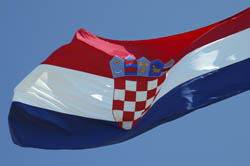Croatia's research arena aims for EU integration
Croatia will soon be a fully fledged EU member. In the lead up to this moment, it has been striving to harmonise its systems and bring them in line with EU standards. One effort in this direction has been the EU-funded project 'Croatian researchers' mobility network' (HR-MOB), which helped open the research environment in Croatia to the world. In undertaking such an ambitious mission, project partners brought together research institutes, universities, government agencies and businesses under one network to promote researcher mobility. In effect, the network created nine contact points at public universities and research institutes that facilitated training visits for Croatian researchers abroad. It also helped researchers with legal and administrative issues such as securing visas, work and residence permits, and gaining access to health services and social security. Practical recommendations to address these issues were published in different forms, such as a book titled 'A foreign researcher's guide to Croatia', which was published in English. Another notable publication was the mobility handbook released in Croatian to support the country's research and development (R&D) institutions. In addition, practical information on the research environment in the country was put on the EU's dynamic EURAXESS website (http://www.euraxess.hr/sitegenius/index.php(opens in new window)). In parallel, the project team participated in workshops and training sessions across the country to address researcher issues such as social security, taxation, salaries and employment procedures. This helped encourage the country's researchers to explore global collaboration opportunities and overcome obstacles in this respect. The major positive outcomes of the project include encouraging an influx of researchers to Croatia and boosting the value of outgoing researchers. This has improved working conditions for researchers in the country and has helped the country integrate into the ERA. When Croatia does finally enter the EU, its research environment will be much closer to the level required. This is a significant achievement for spurring innovation and industry.



